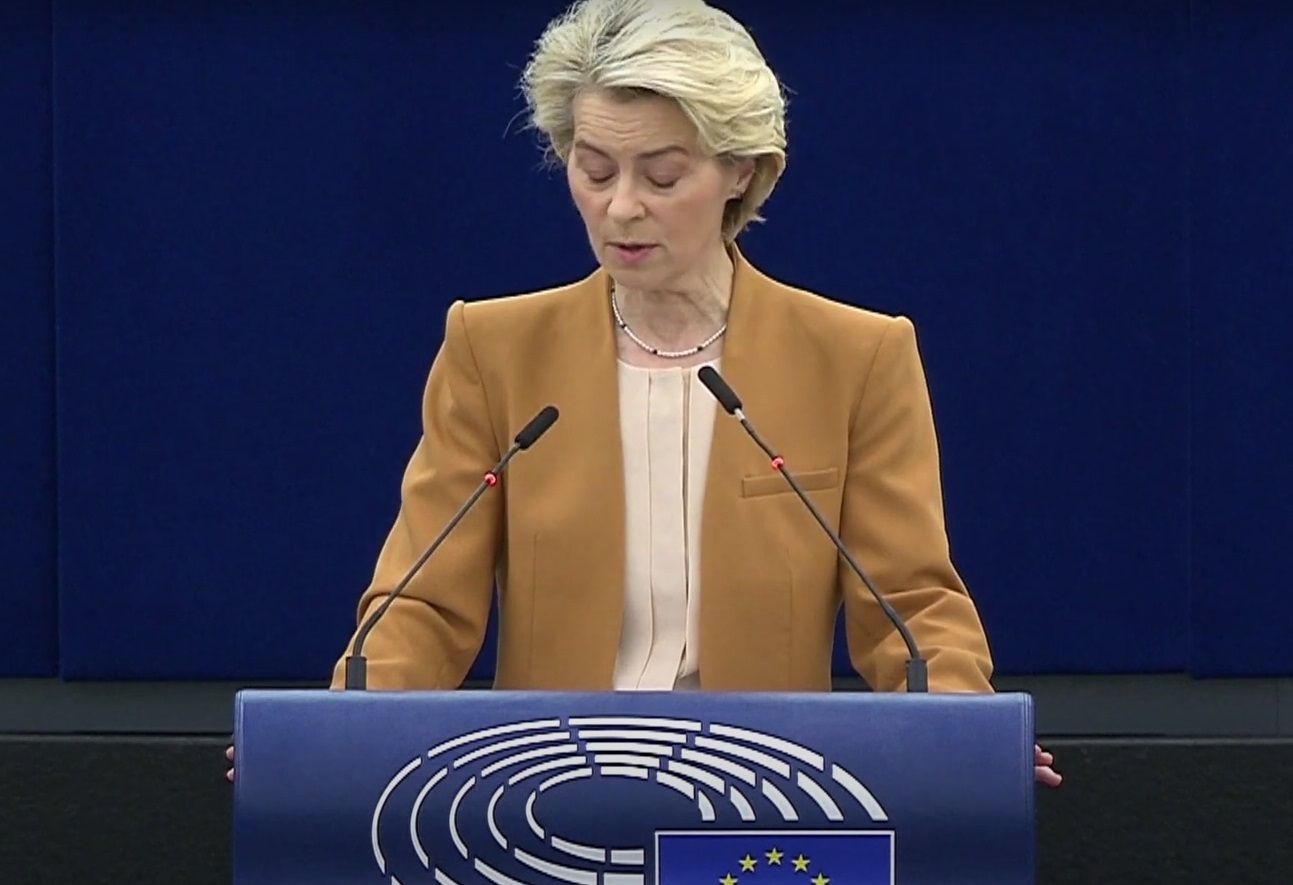International
Pfizergate: the major issue for Von Der Leyen future career

In April 2021, the New York Times revealed that the President of the European Commission had negotiated a contract for 1.8 billion doses of Covid vaccine during the pandemic directly with Pfizer boss Albert Bourla via SMS. On Friday May 17, a first hearing was held at the Tribunal de Liège.
It’s a stain, just three weeks away from running for a new mandate as President of the European Commission. On Friday May 17, the Court of Liège held a hearing to determine whether Belgian justice or the European Public Prosecutor’s Office (EPPO) is competent to continue investigating the complaint against Ursula von der Leyen in connection with “Pfizergate”. Here are some explanations.
The alleged facts
In April 2021, the New York Times revealed that the President of the European Commission had negotiated a contract for 1.8 billion doses of vaccine against COVID for the modest sum of 36 billion euros, directly with Pfizer boss Albert Bourla by SMS. If these accusations prove true, Ursula von der Leyen would have negotiated a vaccine purchase contract outside any European trade rules.
On March 27, the European Commissioner for Health, Stella Kyriakides, took advantage of a discussion before the European Parliament’s Special Committee on the Covid-19 pandemic (COVI) to come to her boss’s rescue, insisting that she had played no role in negotiating the Covid vaccine contracts.
The problem is that Pfizer boss Albert Bourla doesn’t seem to be doing his bit to weaken the accusations of conflict of interest. In a book, he recounts how he established a “close relationship with [Ursula von der Leyen] via SMS and telephone calls” from January 2021 onwards.
A suspect’s silence
Since the New York Times revelations, a number of entities have asked the President of the European Commission to make these SMS exchanges public. Members of the EU Covid Commission, European Union (EU) Ombudsman Emily O’Reilly, the European Public Prosecutor’s Office and the European Court of Auditors have all been rebuffed.
In February 2023, The New York Times itself took the case to the Court of Justice of the European Union (CJEU) to obtain disclosure of the SMS messages in question after their request for access to the documents was refused. The CJEU then lodged an administrative complaint against the European Commission, which has consistently refused to reveal the content of the SMS messages or even confirm their existence. “Everything necessary has been said and exchanged. And we will wait for the results”, explained Ursula von der Leyen.
Indeed, if ever SMS messages were used to negotiate financial transactions involving the European Union, they would become administrative documents in the legal sense. By refusing to disclose them, Ursula von der Leyen would be undermining the rights enshrined in the European constitution. If she were to delete them, this would constitute the destruction of administrative documents.
The official compliant
In April 2023, Belgian lobbyist Frédéric Baldan, who specialized in China-EU trade relations, lodged a complaint against Ursula von der Leyen with a judge in Liège for “illegal taking of interests and corruption”, “usurpation of functions and titles” and “destruction of public documents”. He believes he has suffered moral prejudice in the form of “loss of confidence in the Union as a power for achieving the common good”.
Above all, he thinks that Ursula von der Leyen’s negotiations with Pfizer have caused harm to Belgium’s public finances. He draws attention to the fact that, by the end of 2022, 27.9 million of Belgium’s 40.4 million doses of the Covid-19 vaccine had been acquired through purchases made from Pfizer, per data from the Sciensano Institute of Public Health. The Belgian lobbyist sees this as a privilege granted to the American pharmaceutical giant. As it happens, the Politico media reported that by the end of 2023, at least 4 billion euros worth of doses had been wasted. As a result, the contract between the European Union and Pfizer had to be renegotiated.
Frédéric Baldan has also filed a civil action, claiming 50,000 euros for moral damages. He hopes that the Liège examining magistrate will be “able to requisition the SMS messages and not just ask for them”. The latter considers that if the former German minister and the Pfizer boss were to invoke the private nature of these exchanges, this would reveal a serious conflict of interest in the context of the sale of vaccines to the European Union.
Associations, political parties, citizens and even European countries—Viktor Orbán’s Hungary and Poland, at the time governed by the ultraconservative PiS—have joined Frédéric Baldan’s complaint.
The real legal issue
On May 17, the Belgian court had to decide whether it was up to the Belgian justice system to continue investigating the complaint or whether it was up to the European Public Prosecutor’s Office (EPPO) to look into this “Pfizergate”. The EPPO has taken up the Belgian complaint and presented its indictment in Liège. EPPO deals with cases that have a transnational dimension or concern the EU budget. However, the Belgian examining magistrate wishes to continue his investigation. The Court of Liège has decided to postpone the case until December 6 in order to give the parties time to decide on the competence of the European Public Prosecutor’s Office.
Meanwhile, online media outlet Blast revealed in September 2023 that Frédéric Baldan had had his professional lobbyist accreditation withdrawn in June of the same year by a European Union transparency register, which depends on the authority of Ursula von der Leyen.






